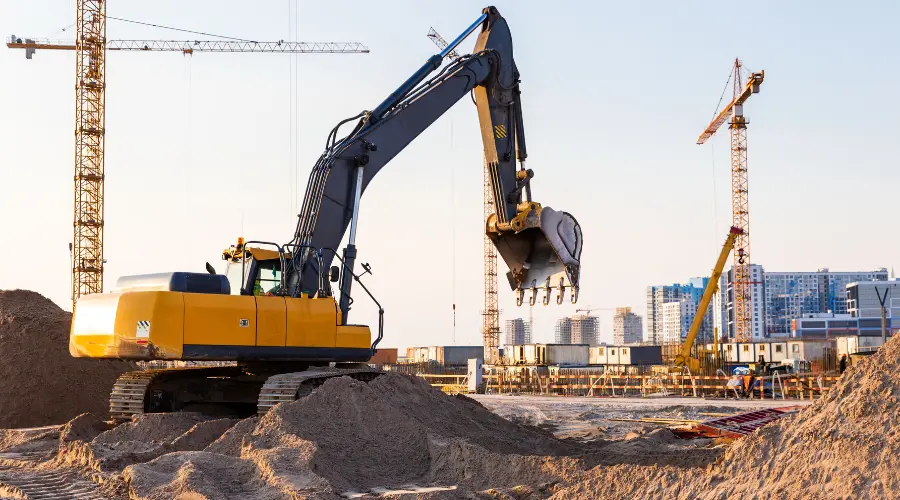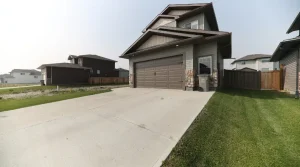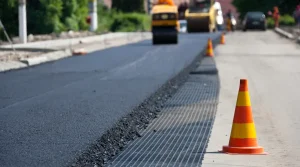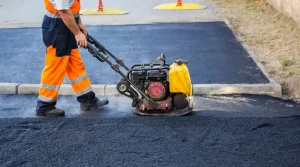Key Takeaways:
- The cost of residential paving varies based on material selection, project size, and labor expenses.
- Asphalt and concrete are budget-friendly options, while brick and natural stone offer premium aesthetics at a higher cost.
- Labor costs depend on project complexity and location.
- Proper budgeting includes planning, obtaining multiple quotes, and considering long-term maintenance expenses.
- Keeping a contingency fund prevents unexpected financial strain.
- Choosing experienced contractors ensures durability and quality results.
Understanding the Costs of Residential Paving Projects
Enhancing your property with a residential paving project not only boosts curb appeal but also improves functionality. Whether upgrading your driveway, walkway, or patio, knowing the costs involved helps you plan your budget efficiently. In this guide, we’ll explore cost factors such as material selection, project size, and labor fees, along with seven budgeting tips to ensure a smooth paving experience. With the right preparation, you can achieve a stunning and durable paved surface without exceeding your budget.
Estimating Residential Paving Costs
Several factors influence the total cost of a paving project, including the type of material used, the project’s square footage, labor charges, and any extra features such as decorative elements or drainage systems. Here’s a breakdown of typical costs:
- Material Costs:
- Asphalt: $3 – $7 per square foot
- Concrete: $4 – $10 per square foot
- Brick: $10 – $20 per square foot
- Natural stone: $15 – $30 per square foot
- Project Size:
- The larger the area, the higher the cost due to increased material and labor requirements.
- Driveways typically range from 500 to 1,500 square feet, while patios and walkways cover smaller areas.
- Labor Costs:
- Skilled labor is essential for long-lasting results, with rates varying by location and complexity.
- Labor fees typically range from $30 – $50 per hour.
- Additional Costs:
- Site preparation (grading, removal of old pavement): $1 – $5 per square foot
- Drainage solutions: $1,000 – $3,000 depending on complexity
- Custom design elements (stamping, staining): Additional $5 – $15 per square foot
Cost Breakdown in Residential Paving
1. Paving Material Selection
Choosing the right paving material is crucial for balancing cost, durability, and aesthetics. While asphalt and concrete are economical, materials like brick and natural stone provide superior longevity and appeal. Though higher in initial cost, premium materials can increase property value and reduce maintenance expenses over time.
2. Driveway or Patio Size
The larger the area to be paved, the higher the costs. Accurate measurements help estimate the required materials and labor. Opting for a slightly smaller design or simplified layout can help manage costs without compromising functionality.
3. Labor Expenses
Hiring experienced professionals ensures quality workmanship, but labor costs vary based on project complexity, site accessibility, and regional wage rates. Investing in skilled contractors prevents costly future repairs and extends the lifespan of your paved surface.
4. Additional Features
Decorative elements, such as stamped or stained concrete, add visual appeal but come at an additional cost. Similarly, proper drainage solutions prevent water damage and extend the life of your pavement, making them a worthwhile investment.
Budgeting Tips for Paving Projects
1. Plan Ahead
Begin planning early to research materials, gather quotes, and schedule contractors. Advanced preparation ensures better pricing and prevents last-minute expenses.
2. Establish a Realistic Budget
Factor in material and labor costs, site preparation, permits, and a contingency fund to avoid budget overruns. Setting a clear budget helps manage expectations and ensures financial stability.
3. Explore Different Materials
Compare material options based on durability, maintenance, and aesthetic appeal. Asphalt and concrete offer affordability, while brick and stone provide premium looks and longevity.
4. Get Multiple Quotes
Consult at least three contractors to compare pricing, services, and timelines. Look for transparent pricing with no hidden fees to make an informed decision.
5. Consider Long-Term Costs
While cheaper materials save money initially, they may require more frequent maintenance. Investing in high-quality materials can reduce long-term repair and replacement costs.
6. Maintain Flexibility
Be open to adjustments in materials or design to stay within budget while achieving a high-quality outcome.
7. Plan for Contingencies
Unexpected costs can arise, so setting aside 10-20% of your budget for contingencies ensures you’re prepared for any surprises.
Frequently Asked Questions (FAQ)
1. What is the most cost-effective paving material?
Asphalt and concrete are the most budget-friendly options, offering durability and ease of maintenance at a lower cost than brick or natural stone.
2. How long does a residential paving project take?
Project timelines vary based on size and complexity. A standard driveway takes 2-5 days, while larger projects with decorative elements may take up to two weeks.
3. Do I need a permit for a paving project?
Permit requirements depend on local regulations. Some municipalities require permits for driveways, especially if modifying drainage systems or expanding coverage.
4. How can I extend the lifespan of my pavement?
Regular maintenance, such as sealing asphalt every 3-5 years and cleaning concrete surfaces, can prolong the life of your paved areas.
5. Is it better to repair or replace my driveway?
Minor cracks and surface wear can be repaired, but widespread damage, deep cracks, or drainage issues may require a full replacement.
6. How do seasonal changes affect paving costs?
Spring and summer are peak paving seasons, leading to higher costs. Scheduling your project in early spring or late fall may offer better pricing.
7. How do I choose the best paving contractor?
Look for licensed and insured contractors with positive reviews, a solid portfolio, and clear pricing. Request references and compare multiple quotes before deciding.
Conclusion
Residential paving projects enhance both the aesthetic appeal and functionality of your property. Understanding the costs involved—ranging from material selection and labor to additional features—helps in effective budgeting. By planning ahead, obtaining multiple quotes, and considering long-term expenses, you can achieve a high-quality paving project within your budget. Investing in durable materials and skilled contractors ensures long-lasting results, adding value to your home for years to come. Experience top-quality paving with Hackensack Paving Company – the trusted experts in Hackensack.







